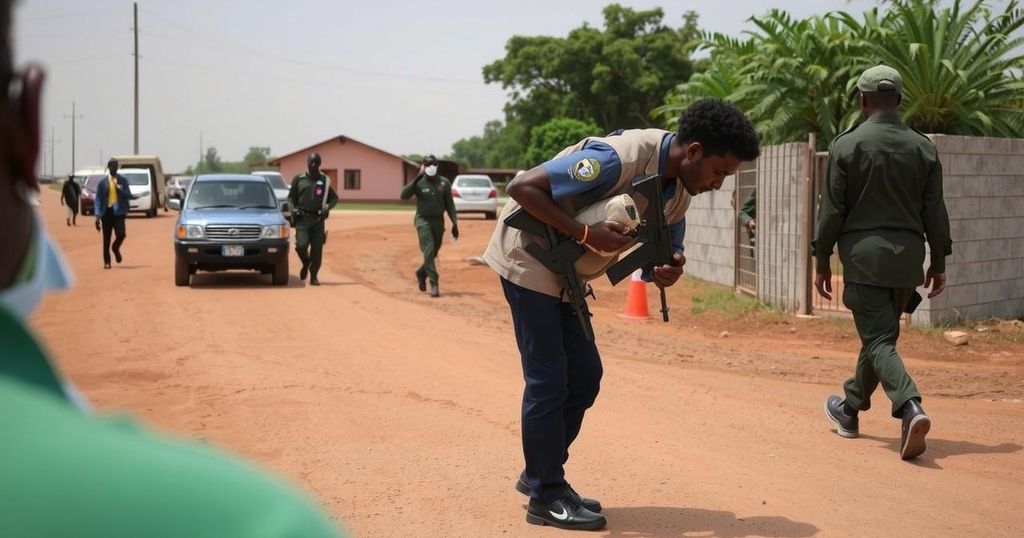South Sudan’s Checkpoint Removal Initiative: Safety Concerns and Public Responses

South Sudan’s removal of checkpoints on highways has elicited mixed reactions among citizens. While some view it positively as a means to ease travel and boost the economy, others fear increased risks from armed bandits. The SSPDF has confirmed ongoing military patrols for safety, but issues like delayed salaries raise concerns regarding security effectiveness.
The recent directive from the Government of South Sudan to eliminate checkpoints on key highways, notably the Juba-Bor route, has triggered mixed reactions among the populace, including commuters, residents, and experts on security matters. While numerous individuals in Bor and those frequently traversing the Juba-Bor Road have expressed optimism regarding the removal of these obstructive points, there are apprehensions regarding increased vulnerability to armed attacks due to a potential rise in lawlessness.
The South Sudan People’s Defense Forces (SSPDF) confirmed the dismantling of these unauthorized checkpoints in alignment with an order from President Salva Kiir that seeks to eradicate such barriers nationwide. Commuters like Chol Chopa, a resident of Bor, applauded the order for ameliorating travel times but simultaneously voiced concerns regarding security risks that may arise should armed groups exploit the absence of military presence. “There were many roadblocks and frequent stoppages on the Juba-Bor route, but now they are gone. The absence could be dangerous as bandits could take advantage of the situation,” he stated.
Conversely, some members of the community, including Victoria Yom Geu, view the removal of the checkpoints with optimism. Geu underscored that eliminating these roadblocks might enhance vehicular flow, minimize illegal tax collections, and subsequently stimulate local economic activities. “We see it as reducing insecurity and making trade more efficient,” she articulated. Similarly, Mach Anyang, who frequently drives the Juba-Bor route, noted that the removal of roadblocks will diminish the frustrations of drivers, who previously faced extortion by military personnel.
Despite the varying perspectives, Major General Lul Ruai Koang, spokesperson for the SSPDF, has sought to reassure the public. He emphasized that although illegal checkpoints have been removed, the army will sustain vigilance through strategic patrols to ensure safety on the roads. “We are monitoring the roads and patrols will continue where needed,” he explained.
Nonetheless, the delays in disbursing salaries to government employees have raised concerns regarding low morale, with some soldiers reportedly abandoning their posts due to unpaid wages. As South Sudan grapples with the delicate balance of enhancing road access while ensuring public safety, the citizenry remains divided over the ramifications of this policy change.
South Sudan has been grappling with security challenges since its independence in 2011, including issues related to armed banditry and extortion at various checkpoints. The government’s recent initiative to abolish illegal roadblocks is aimed at enhancing travel efficiency and reducing the burden on commuters. However, this decision brings forth concerns regarding public safety and the potential increase in criminal activities in the absence of military oversight along these routes, particularly in conflict-affected areas.
In summary, the decision by the Government of South Sudan to remove checkpoints along major highways has been met with a mixture of approval and concern from the public. While some residents anticipate improvements in travel and local trade, others warn of the heightened risks from armed groups. The SSPDF has assured continued oversight through patrols, yet issues such as delayed military wages pose ongoing challenges to maintaining security and public trust in this policy shift.
Original Source: www.radiotamazuj.org








